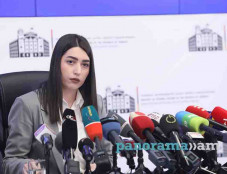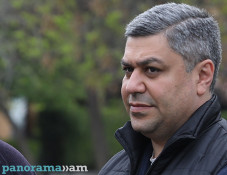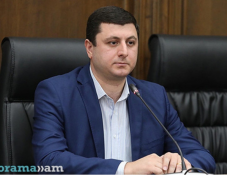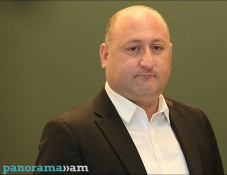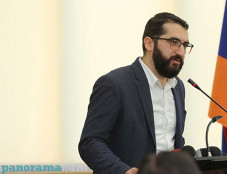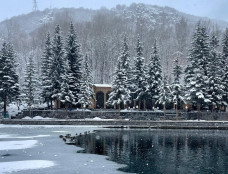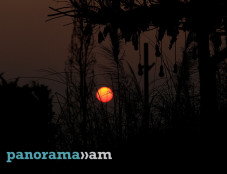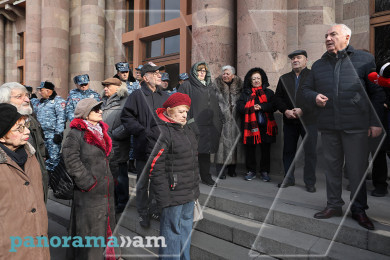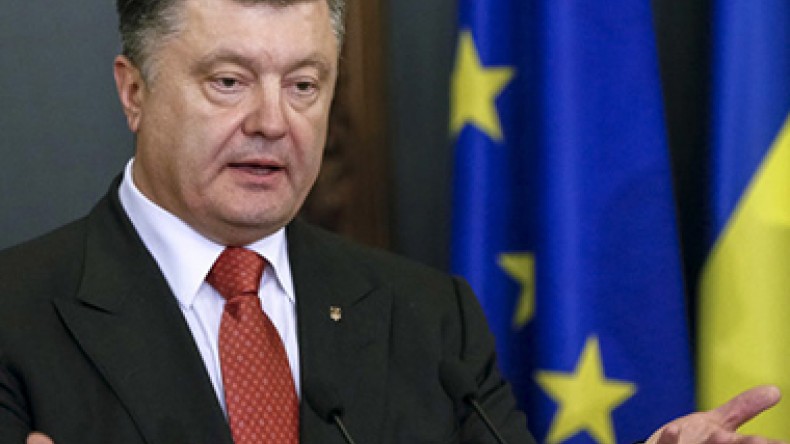
‘Ukraine’s EU membership still distant, EU has enough on its plate’
The EU would be very hesitant before having more obligations towards Kiev because of the ongoing war in Donbass, and because of the Euro crisis and other problems within the bloc, Matthew Dal Santo, of the Danish Research Council told RT.
During the EU-Ukraine summit in Kiev on Monday, President Poroshenko said he hoped his country would be able to apply for EU membership within five years. However, the President of the European Commission Jean-Claude Juncker said the EU has enough of their own problems to solve at the moment.
RT: Building a closer relationship with Europe was one of the main aims of the Maidan revolution. Judging by today's summit, has that been achieved?
Matthew Dal Santo: First of all there is no doubt that Ukraine does have a closer relationship with Europe than it did have in November, 2013. The Association Agreement has now been signed, so formally, yes, on paper there is a closer relationship between Ukraine and Brussels now than has [ever] historically been.
RT: President Poroshenko is optimistic about these closer ties you’ve just mentioned. He wants Ukraine to apply for EU membership in five years' time. But EU leaders don't seem to share this optimism. Is it still a distant prospect?
MDS: I think that is a distant prospect. I think that President Tusk was correct when he said that the EU has enough on its plate at the moment and I think that is certainly true. The EU would be very hesitant before constructing any more obligations with Kiev, not just in a light of the ongoing war in Eastern Ukraine, that is obviously primary preoccupation, but also in view of the other problems that the EU has - the Euro crisis, etc. that occupy a lot of European time.
RT: Ukraine is clearly a political hot potato for the EU leaders. Can you see a time when it will be possible for Ukraine to enter the EU?
MDS: I think to some extent that is the heart of the conflict. I’m not sure that it was ever necessarily the EU’s intention to offer Ukraine membership. That was always a possibility but it has never been formally extended. Certainly Russia seems to remain as opposed now to Ukrainian membership in the EU as it has been for the past 18 months. I don’t think that is going to be an easy equation to stop.
RT: Ukraine also wants a visa-free regime with the EU, but no progress was reached on that front either at the summit. So are there any positives at all that Ukraine can take from the talks?
MDS: The fact that [the summit] occurred at all, simply having the President of the European Council, the head of European Commission in Kiev, it’s a strong symbolic statement of support for the government in Kiev. In terms of anything more concrete, I don’t think that it is, there is a lot to point to.
RT: Brussels has been resisting Kiev's request for an international peacekeeping mission in East Ukraine. Why do you think that is?
MDS: It is difficult to imagine a situation whereby you could safely send in European soldiers - and that is what the peacekeepers are, they are soldiers - into what is still in all intents and purposes a warzone. It would be very easy for any kind of mistake or miscalculation to escalate into something much nastier between any European peacekeepers involved and potentially Russian forces…First of all they need to have peace to [send] in peacekeepers, and there is no peace yet.
Newsfeed
Videos






